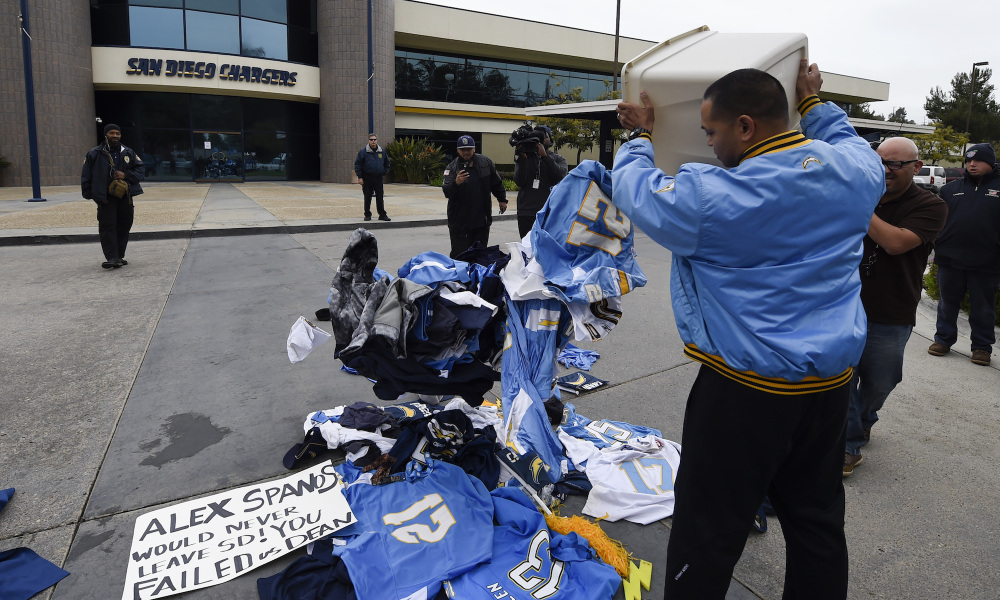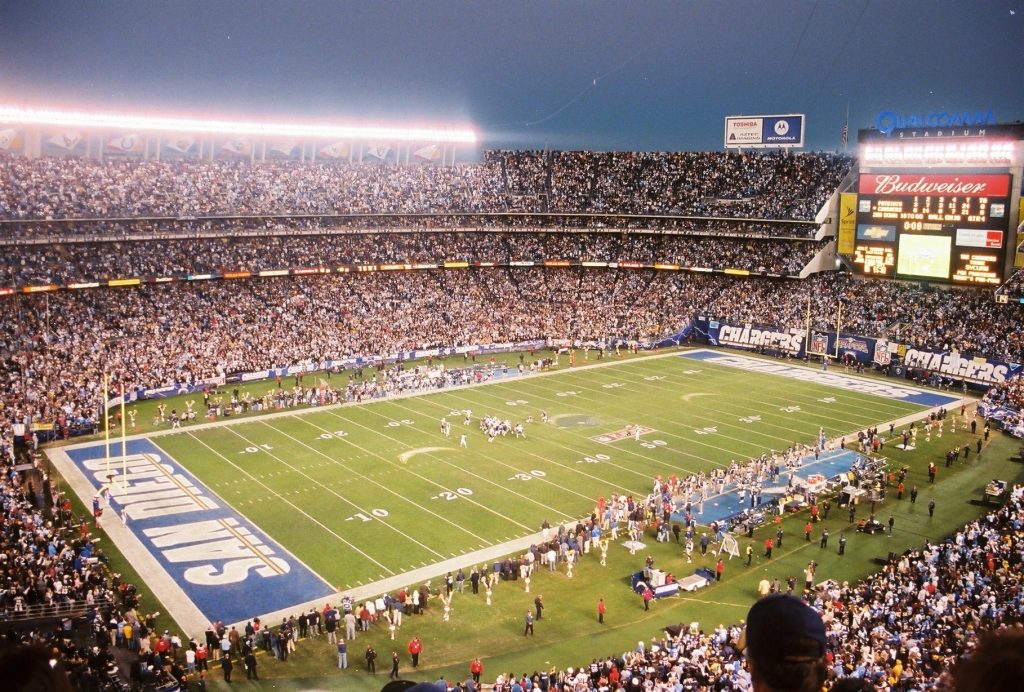
The people of San Diego won by losing.
Chargers owner Dean Spanos did the corporate equivalent of taking his ball and going home Thursday, bolting for Los Angeles because San Diego residents had balked at building his team a fancy new stadium. Imagine the nerve of those people! Refusing to spend millions for a stadium that, studies have shown, would likely end up costing taxpayers more than what is originally estimated while providing less in return.
“As difficult as the news is for Charger fans, I know Dean Spanos and his family did everything they could to try to find a viable solution in San Diego,” NFL commissioner Roger Goodell said in a statement.
Oh, spare me. The Spanos family had a net worth of $2.4 billion as of Thursday, according to Forbes. Yes, billion. With a B. That’s more than enough money for Spanos to build the stadium of the Chargers’ dreams on his own if he’d wanted.
The new stadium was to cost $1.2 billion, with the NFL saying it would kick in an unprecedented $300 million. A naming rights deal likely would have brought another $250 million to $300 million, at least. That leaves a cost of roughly $600 to $650 million, and here’s where the math gets fuzzy:
Spanos had pledged $350 million to the stadium project in San Diego. But now that he’s moving, he’ll have to pay the NFL a $550 million relocation fee.
That’s right. For roughly the same amount of money he’s spending to flee the city that has loved his usually woeful team unconditionally for 56 years, Spanos could have had his new stadium. Instead, he fire bombed his fan base to relocate to a city so enthused by the move that it couldn’t even manage to stifle its yawn.
“(San Diego) will always be part of our identity, and my family and I have nothing but gratitude and appreciation for the support and passion our fans have shared with us over the years,” Dean Spanos wrote in a letter announcing the move.
If he was really that grateful and appreciative, Spanos wouldn’t be giving San Diego the worst kiss off since Ron Burgundy.
But he and pretty much every other owner think they’re owed civic welfare as a show of gratitude for their benevolence in owning a sports franchise. Franchises that already line owners’ pockets with millions of the public’s money each year in the form of merchandise, ticket sales, concessions and parking, mind you.

During the current stadium boom – of the 62 teams in the NFL and Major League Baseball, only 14 play in a stadium built before 1990 – about $7 billion in public funding has been spent to build or renovate NFL stadiums alone, according to the Taxpayers Protection Alliance. More than $11 billion in public subsidies went to other pro sports venues.
As if that’s not nauseating enough, consider that Atlanta is currently building a $1.6 billion NFL stadium and a $672 million baseball stadium to replace structures that were 25 and 20 years old, respectively.
San Diego just spared itself that fiscal insanity.
Yes, it’s devastating to lose a team that has been part of the city’s identity for more than a half-century, and Chargers fans were understandably outraged at being jilted. In the hours after Spanos made his announcement, fans littered the sidewalk in front of the team’s headquarters with jerseys and other now-unwanted merchandise.
But if there’s anything that has become clear in all of these money grabs – and stay strong, Oakland, because you’re next – it’s that teams really don’t give a damn about their fans. So long as there are suckers in another town so blinded by the prospect of having a professional franchise that they don’t read the fine print, teams will view their fans as little more than lines on a balance sheet.
That’s not being part of the fabric of a community, that’s blackmail.
“At the end of the day, the Chargers wanted a lot more taxpayer money than we could have ever agreed to,” San Diego Mayor Kevin Faulconer said. “We could not support a deal that is not in the best interests of San Diego.”
Disappointing as it is to see the Chargers pack up and move, it’s better than being fleeced.
By Nancy Armour
This article was republished with permission from the original author and 2015 Ronald Reagan Media Award recipient, Nancy Armour, and the original publisher, USA Today. Follow columnist Nancy Armour on Twitter @nrarmour.